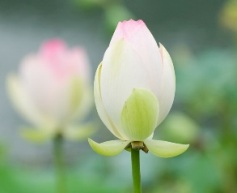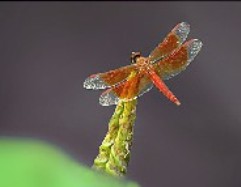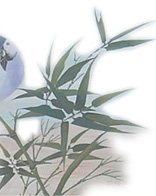|
 Listen to Shirley Singing the Poem in English & Chinese Sep 12, 2012 Listen to Shirley Singing the Poem in English & Chinese Sep 12, 2012
 Listen to Shirley Singing the Poem in Chinese & English Sep 12, 2012 Listen to Shirley Singing the Poem in Chinese & English Sep 12, 2012
 Listen to Shirley Explaining the Poem & Follow Me to Read It Listen to Shirley Explaining the Poem & Follow Me to Read It
 Learn the Meaning of This Poem Learn the Meaning of This Poem
 See Shirley Created Paintings & Calligraphy for the Poem Oct 5,2012 See Shirley Created Paintings & Calligraphy for the Poem Oct 5,2012
 See Shirley Created Paintings & Calligraphy for the Poem Jan 23,2012 See Shirley Created Paintings & Calligraphy for the Poem Jan 23,2012
 See Shirley Created Paintings & Calligraphy for the Poem Sep 5,2010 See Shirley Created Paintings & Calligraphy for the Poem Sep 5,2010
 China is a poetic country. In our daily life, we often use some lines to make our language more implicative and easier to understand. China is a poetic country. In our daily life, we often use some lines to make our language more implicative and easier to understand.
For example, when we want to say that only a small part of something is visible or just appears while most of it is still hidden or has not yet showed, we often say: Xiao He Cai Lu Jianjian Jia ÔÇô The pointed tip of a little lotus leaf just appears.
This line is from a little poem Xiao Chi -- A little Pool by Song Dynasty (960 - 1279) poet Yang Wanli (1127 - 1206).
About the Poet
Yang Wanli was from Jizhou (in todayÔÇÖs Jiangxi Province). He was a successful candidate in the highest imperial examinations in 1154 and was a good official.
Yang Wanli was a patriot. Politically, he insisted on fighting against the aggression of the Jin (1115 ÔÇô 1234), a northern nation. But his political views were not accepted by the Court and after trying many times, he became disheartened and withdrew from society and lived in solitude for 15 years until he died with a sorrowful heart.
Yang Wanli was a famous poet in the Southern Song Dynasty -- There were two phases of the Song Dynasty, the Northern Song (960-1126) and Southern Song (1127 - 1279). He was one of the Four Great Masters of the Southern Song and has a same reputation as You Mao, Fang Dacheng and Lu You in the history of Chinese literature.
Yang Wanli wrote over 20,000 poems of which more than 4200 still exist.
Enjoy the Poem
Xiao Chi ÔÇô A little Pool, is a very little poem of just 4 lines about a small, but very interesting scene on a beautiful summerÔÇÖs day. Through depicting the mouth of a spring, a little streamlet, the shadow of a tree, several lotus leaves and a lovely dragonfly, it forms a lively picture of a little pool, showing the close and harmonious relationship among things in nature.
First two lines: Š│ëšť╝ŠŚáňú░Šâťš╗ćŠÁü´╝îŠáĹÚś┤šůžŠ░┤šł▒ŠÖ┤Ščö Qu├ínyăÄn w├║sh─ông x─ź x├Čl├şu, sh├╣y─źn zh├áoshuăÉ ├ái q├şng r├│ngÔÇô The silent mouth of a spring "cherishes" the little streamlet and lets it flow into the pond quietly; The shadow of a tree is reflected in the water, why? Because, it "loves" the soft view on the sunny day. These two lines take the reader into a small, exquisite, soft and delightful environment.
With a wonderful imagination, the poet has endowed things in nature with the life and the attributes of human beings: The mouth of the spring Cherishes the streamlet, it Lets the water flow silently; the shadow of the tree Loves the soft and fine view in the water, so that it is reflected in the water too.
No matter whether the mouth of the spring, the shade of the tree or a dragonfly, they are all alive and have lives and feelings just like human beings, each line is just like a picture.
Last two lines: ň░ĆŔŹĚŠëŹÚť▓ň░ľň░ľŔžĺ´╝ꊝëŔť╗ŔťôšźőńŞŐňĄ┤XiăÄo h├ę c├íi l├╣ ji─ünji─ün jiăÄo, zăÄoyăĺu q─źngt├şng l├Č sh├ángt├│u -- The pointed tip of a slim lotus leaf just appears before opening her body, quickly a dragonfly lands on it.
Like a master photographer who can snap an interesting picture, these lines capture the moment when, just as the pointed tip of a lotus leaf appears, a dragonfly immediately lands on it. These lines write about how both of the lotus leaf and the dragonflyÔÇťenjoy and rely onÔÇŁeach other.
Yang Wanli claimed that poetry should imitate nature and learn from nature. He was quite interested in the natural landscape, very often used a clear and lively tone and easy and popular language, described the everyday and common views, he was especially good at capturing the character of the views and their transience, his poetry paints some interesting pictures and they are full of the strong breath of life.
With this writing style, no matter how small the things were that he wrote about, whether a little flower, a little worm or a little bird, they all have the same feelings and thoughts as people. This style has vivacity and loveliness and is wit and humor.
Now in China, the little lotus leaf is often used to describe someone who is just beginning to show their ability and talent, the dragonfly is just like someone who admires such a person.
Mr. Wang Guowei (1877 -1927), a versatile, original scholar who made important contributions to the studies of ancient history, epigraphy, philology, vernacular literature and literary theory said:
The subject of a poem can be big or small, we should not judge whether a poem is excellent or otherwise from the largeness or smallness of its subject.
Every thing in this poem is small, but, it describes exquisite feelings and tasteful stories through capturing the details of life. It is really great.
I translated it, wrote a piece of music in 2006 painted two pictures for it in 2010 and 2012. I really hope my effort will be of some help to you in learning Chinese culture and language.
Main Meaning of the Poem
A Little Pool
By Yang Wangli (Song Dynasty)
The silent mouth of a spring ÔÇťcherishesÔÇŁ the thin streamlet,
The shadow of the trees is reflected in the water, it ÔÇťlovesÔÇŁ the scene in the sunshine.
A little lotus leaf just appears with a sharp tip,
Quickly, a dragonfly lands on it.
Chinese Characters & Pronunciations:
You can click on any Chinese Character to open the New Character Board and to see its Chinese pinyin, meaning, pronunciation and follow me to read it, you can also click the links over to enter the Painting Column,or you can directly enter the art notes on the painting that I created for this poem to see my painting and art notes for the poem
ň░ĆŠ▒á - XiăÄo Ch├ş
ŠŁĘńŞçÚçî ( ň«ő ) - Y├íng W├ánlăÉ ( S├▓ng )
Š│ëšť╝ŠŚáňú░Šâťš╗ćŠÁü - Qu├ínyăÄn w├║sh─ông x─ź x├Čl├şu,
ŠáĹÚś┤šůžŠ░┤šł▒ŠÖ┤Ščö - sh├╣y─źn zh├áoshuăÉ ├ái q├şng r├│ngŃÇé
ň░ĆŔŹĚŠëŹÚť▓ň░ľň░ľŔžĺ - XiăÄo h├ę c├íi l├╣ ji─ünji─ün jiăÄo,
ŠŚęŠťëŔť╗ŔťôšźőńŞŐňĄ┤ - zăÄoyăĺu q─źngt├şng l├Č sh├ángt├│uŃÇé
 If you have any questions, comments and suggestions, please write to shirley@ebridge.cn or shirleyz004@yahoo.com. You are welcome to publish your opinions in Message Board as well. If you have any questions, comments and suggestions, please write to shirley@ebridge.cn or shirleyz004@yahoo.com. You are welcome to publish your opinions in Message Board as well.
Shirley Zhang
Shirley Wrote, Painted, Translated, Sang & Recorded the Content over Oct 7, 2012 / Jan 20, 2012/ Sep 5, 2010/ July 23, 2006
|

